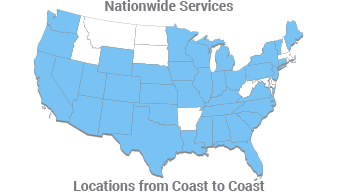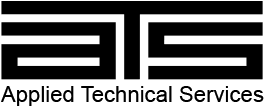- Home
- Services/IndustriesServicesindustries
- About Us
- LocationsStatesAccordion ContentAccordion ContentAccordion ContentAccordion Content
- Job Openings
- Quick Links
- ATS Family

ELV Testing
Applied Technical Services performs ELV testing to help automotive clients maintain compliance with the directive.
Automotive Scrap: The Toll on Human and Environmental Health
Disposing of a retired vehicle bears certain unintended consequences. While scrap yards salvage and recycle much of a vehicle’s most profitable materials (namely steel and aluminum), more hazardous substances make their way into the environment via landfills. Many of these toxins leach into the soil and make their way up the food chain. Although we are naturally exposed to them in trace amounts, ingesting unsafe levels of heavy metals such as lead, mercury, cadmium, and hexavalent chromium can cause a litany of health effects over time — ranging from developmental problems in fetuses to cancer in adults. If one car’s worth of toxic materials presents a problem, the associated health risks grow precipitously when one considers that roughly 27 million vehicles are retired annually around the world.
Several legislative bodies across the world recognize the danger posed by these heavy metals in other consumer products, prompting them to produce legislation such as California’s Proposition 65 to curb their usage. The End-of-Life Vehicle directive pertains specifically to automotive products.
How the End-of-Life Vehicle Directive Helps
Implemented by the European Union (EU) on 18 September 2000, the End-of-Life Vehicle (ELV) directive applies to all entities seeking to sell automotive products in its member nations. This legislation primarily aims to reduce the impact that end-of-life vehicles have on the environment and human health. As an extended producer responsibility law, the ELV directive imposes a variety of responsibilities on the automotive industry that take place after the point of sale, including recycling rates and procedures. Furthermore, it limits the levels at which OEMs may include the above heavy metals in their products. To remain compliant with the directive, automotive products may not contain:
To achieve compliance with the ELV’s restriction on environmentally hazardous substances, the chemical composition of automotive components cannot contain the following materials in the associated concentrations:
- Lead (Pb) in excess of 1,000 parts-per-million (ppm)
- Mercury (Hg) in excess of 1,000 ppm
- Hexavalent Chromium (Cr VI) in excess of 1,000 ppm
- Cadmium (Cd) in excess of 100 ppm
These rules ensure manufacturers keep heavy metals of concern at a minimal level to help protect the environment and consumers.
Much like its sister legislation, the Restriction of Hazardous Substances (RoHS) directive, the ELV directive limits apply to each mechanically separable component, not the whole assembly. To illustrate: manufacturing a car battery — one of the most common industrial uses for lead — chemically comprised of more than 0.1% lead does not follow the ELV restrictions. Noncompliance with this directive can result in penalties ranging from fines to denial of importation rights in EU member countries.
The EU places primary responsibility regarding material compliance on Original Equipment Manufacturers (OEMs). These companies are expected to document and certify compliance to satisfy reporting requirements. Intent on maintaining access to this important economic region, OEMs shared some of the accountability with their parts suppliers by creating the International Materials Data System (IMDS). Using the IMDS, suppliers can maintain strict oversight on the composition of constituent materials, the supply lines leading to their use in completed vehicles, and whether they comply with pertinent regulations.
Suppliers send samples of materials in question to third-party analysis labs like Applied Technical Services to verify and measure the presence of restricted substances for ELV compliance.
How We Perform ELV Testing
ATS offers ELV testing to ensure samples comply with the directive. Our metals analysis specialists subject these materials to a form of testing called Inductively Coupled Plasma Atomic Emission Spectroscopy (ICP-AES). This method uses advanced equipment to detect the chemical composition of the analyte. First, because ICP-AES requires a liquid specimen, our chemists digest the solid sample using an acid matrix. They then introduce this solution into the instrument’s nebulization chamber, which superheats it using a plasma source. The plasma energy source excites the individual elemental molecules causing them to emit a characteristic energy wavelength. Our equipment measures these emitted energy wavelengths and then performs precise calculations for each element detected. Using this method, the machine yields measurements for the relative concentration of each element present in the analyte.
Our chemical analysis team performs all ELV testing at our Marietta Super Lab. This elite group offers clients their expertise in performing ICP-AES to internationally recognized standards and client specifications alike. Because they regularly conduct this method of analysis, ATS’ metals testing experts can achieve ultra-fine detection limits as low as 1 ppm — a threshold much lower than required by the ELV directive. Furthermore, we maintain ISO 17025 accreditation through the A2LA to perform ICP-AES to ASTM E1479 to detect each of the substances restricted by the ELV and ASTM E1613 for lead specifically.
About Applied Technical Services
Since our founding in 1967, Applied Technical Services has offered testing, consulting engineering, and inspection capabilities of the highest quality. Our company has flourished in the past 50+ years. While ATS once began as a group of three engineers catering to local businesses from our founder’s basement, we have since grown tremendously into a multidisciplinary firm serving clients around the world with our 1,000 plus work force consisting of chemists, scientists, inspectors, Professional Engineers, technicians, calibrators, and trainers. Although we work alongside dozens of other industries, our capacity as an ELV testing provider exclusively benefits automotive clients.
Our Commitment to Quality
ATS values quality as a guiding tenet. We hold ourselves to exacting standards to ensure that we provide only the highest quality of service. Our ISO 9001 registered quality management system serves as an example of our dedication. Maintaining this credential signifies that ISO-approved auditors independently affirm our program aligns with internationally recognized standards outlining sound quality assurance principles. We maintain this certification to maintain accountability for and continually improve the quality of services we provide our clientele.
To ensure a positive customer experience when working with our testing services, ATS upholds the following policies:
- Our lab personnel return clear, accurate, and detailed reporting quickly to allow clients to make timely and informed decisions regarding their sample
- We empower our customer service ambassadors to receive calls from clients with questions on the status or results of their testing and facilitate contact with pertinent testing experts
- These specialists remain accessible to client outreach, responsive to their needs, and engaged in finding a solution to their problem
If your company needs the services of a qualified ELV testing provider, contact ATS today for a free quote — We take a closer look!

Request Form
"*" indicates required fields
